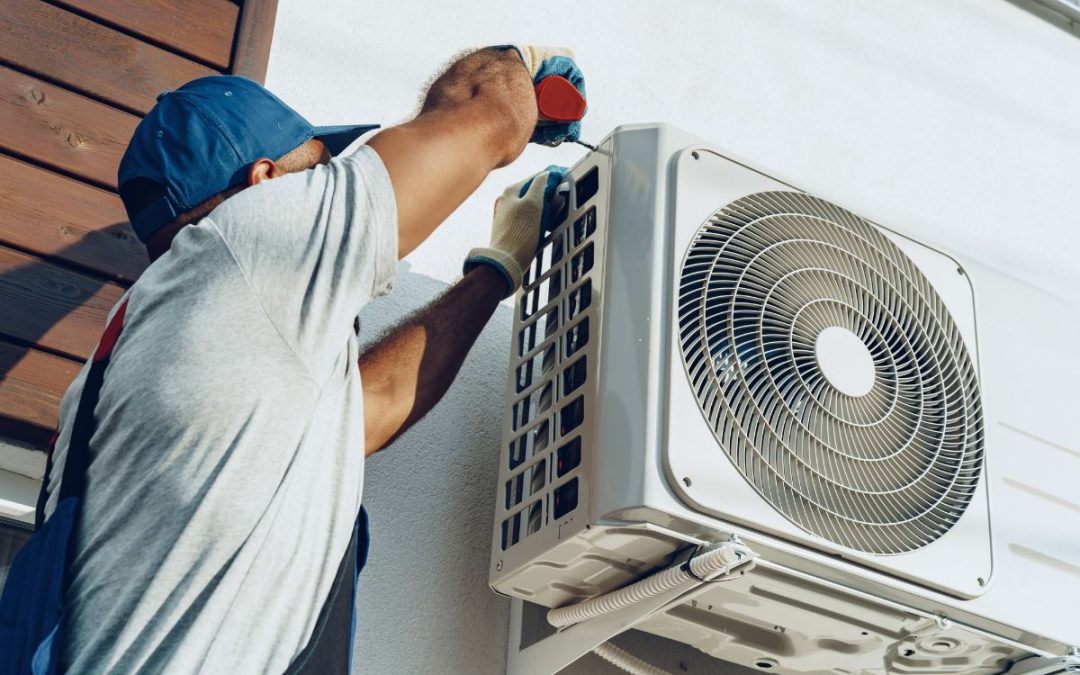Frequent Air Filter Cleaning:
Cleaning or replacing the air filters regularly is one of the most crucial maintenance duties for an air conditioner. Dust, pollen, and other particles clog filters over time, limiting airflow and lowering the unit’s effectiveness. A clogged filter makes the air conditioner work harder, which can cause overheating and increase energy usage. These problems can be avoided and the system’s smooth operation ensured by routinely cleaning or replacing the filters.
Turn off the device and find the filter panel to clean or replace the filters. If the filter can be reused, vacuum it or give it a gentle wash with soap and water, making sure it dries completely before putting it back in place. Depending on usage and environmental conditions, it is advised to replace disposable filters every one to three months.
Wash The Coils:
Your air conditioner’s condenser and evaporator coils are both crucial parts that might get dusty over time. Reduced cooling capacity results from dirt accumulation on the coils, which lessens their capacity to absorb heat. Frequent coil cleaning reduces the likelihood of malfunctions and guarantees the unit’s continued efficiency.
Turn off the air conditioner and carefully remove the outer cover to gain access to the coils for cleaning. Scrub lightly with a soft brush or cloth after using a coil cleaner or a solution of mild detergent and water. Before restarting the device, make sure the coils are dry and take care not to damage the fragile fins.
Inspect and Clean the Condensate Drain:
In order to remove the moisture that the evaporator coil has gathered, the condensate drain is essential. Water damage or the formation of mould may result from water backing up into the system due to a clogged drain. Regularly cleaning the condensate drain keeps the air conditioner operating correctly and helps avoid these problems.
Check for obstructions in the drain line, which is often composed of PVC pipe, to clean the drain. To remove the debris, you can use a wire or a wet/dry vacuum. To get rid of any bacteria or mould growth, flush the drain with a solution of vinegar and water.
Insulate And Seal The Ductwork:
A common problem in houses with central air conditioning systems is leaky ductwork. Cool air escapes before it gets to the designated rooms through improperly sealed or insulated ducts, making the system work harder. You may avoid this loss of efficiency and lower your energy expenses by sealing and insulating your ducting.
Look for any obvious leaks or cracks in the ducting. To seal these openings and guarantee that the ductwork is airtight, use mastic sealer or metal tape. To further increase energy efficiency and decrease air loss, think about installing insulation in places like crawl spaces or attics.
Verify The Levels Of Refrigerant:
Your home must be cooled by the refrigerant in your air conditioner. The system will have trouble cooling efficiently if the refrigerant level is too low, and you can notice a decrease in cooling performance. Ice buildup on the coils due to low refrigerant might potentially result in system failure or shutdown.
Warmer-than-normal air coming from the vents, ice accumulation on the evaporator coil or refrigerant lines, and the system operating continually without sufficiently chilling the area are all indicators of low refrigerant levels. Since handling refrigerant necessitates specific skills and tools, it’s crucial to get in touch with a professional to check and replenish the refrigerant if you anticipate a problem.
Plan for Annual Professional Maintenance:
Even while you may perform many maintenance chores on your own, it’s crucial to plan for yearly professional air conditioner maintenance. Expert HVAC technicians are able to conduct more thorough examinations and spot possible problems that the inexperienced eye could miss. Frequent expert maintenance may guarantee your system is operating well and avoid future expensive repairs.
The expert will examine the electrical system, verify refrigerant levels, lubricate moving parts, cleanse the condensate pan, and test the unit’s overall function during a professional maintenance visit. They could also offer suggestions on how to increase the effectiveness of your system.
Upgrade or Replace an Old Unit:
It could be time to replace your air conditioner if it is older than ten to fifteen years. In addition to offering a number of cutting-edge features like smart controls, environmentally friendly refrigerants, and improved air quality management, modern air conditioners are significantly more energy-efficient than their counterparts. Your energy expenditures might be significantly reduced by switching to a newer model.
Look for units with the Energy Star badge and high SEER (Seasonal Energy Efficiency Ratio) ratings when selecting a new unit. These units are made to operate more efficiently while using less energy. Newer systems can also lessen your environmental impact and usually require fewer repairs.
Boost the Insulation of Your Home:
Another efficient method to improve the efficiency of your air conditioning system is to improve the insulation in your house. Longer durations of cold air retention in well-insulated homes lessen the strain on your air conditioner. This can prolong the life of your cooling system and reduce your energy costs.
Consider insulating the walls, attic, and crawl area with new or improved materials to make it more energy efficient. Another way to stop cool air from escaping is to seal the crevices around windows, doors, and electrical outlets. By blocking out direct sunshine, window coverings like blinds or curtains can help cut down on the need for excessive cooling on hot days.


